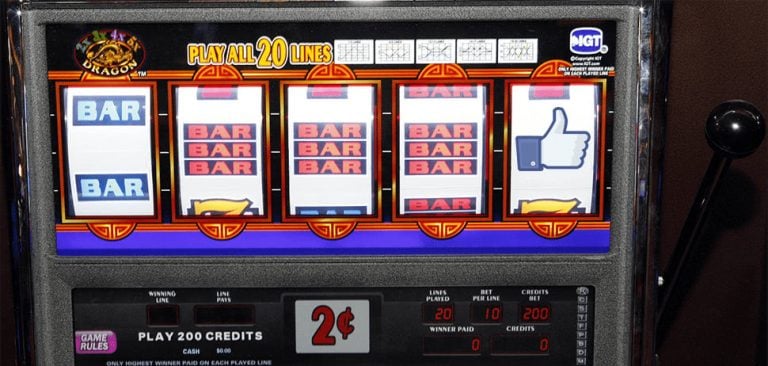We’ve all found ourselves staring at our phones for much longer than we ever planned to, usually refreshing Facebook ad nauseam as we anxiously try and see new and exciting information appear before us. But why do we do it? Why do we constantly find ourselves repeatedly refreshing our social media pages to see new content? Apparently, the answer is due to some old fashioned casino mind tricks.
Despite the fact that social media notifications exist for the very purpose of notifying us of new content, almost every Facebook user will at some point find themselves mindlessly swiping their homepage down, utilising the ‘pull to refresh’ feature while hoping to see new content that they find relevant. As LADbible notes, this plays right into the desires of Facebook and its advertisers, who are charged more depending on how much time users spend on the page.
So, how do Facebook get its users hooked? By employing casino tactics, of course.
As VICE reported recently, most social media platforms use tactics that play into instant gratification as a way to hook its users. From Facebook’s ‘like’ button to Snapchat’s ‘streak’ and trophy systems, social media is forever giving us meaningless rewards for our basic use of the services in an effort to influence our continued use. However, one of the most blatant aspects comes in the form of the ‘pull to refresh’ feature that we utilise to see new content on our newsfeeds.
As Julian Morgans wrote for VICE, “The easiest way to understand this term is by imagining a slot machine. You pull the lever to win a prize, which is an intermittent action linked to a variable reward. Variable meaning you might win, or you might not. In the same way you refresh your Facebook updates to see if you’ve won. Or you swipe right on Tinder to see if you’ve won.”
Adam Alter, the author of Irresistible: The Rise of Addictive Technology and the Business of Keeping Us Hooked, has spoken at great length on this subject. “I don’t think social media companies are trying to make “addictive” platforms, per se,” he said. “But since they’re all competing for our (limited) time and attention, they’ve always been focused on making the most engaging experience possible.”
However, Alter also believes that this attempt by social media to keep us hooked isn’t going away any time soon. “It might diminish a bit,” he says. “But as long as companies have an incentive to make their platforms as engaging as possible, the arms race forcing them to ‘manipulate’ users will continue.”
Love Music?
Get your daily dose of metal, rock, indie, pop, and everything else in between.
The worst part about all this though? Even if we’re aware of it, we’re still going to continually fall into that trap time and time again, thereby proving the psychology that Facebook and other social media platforms are trying to exploit.
Sure, we could delete Facebook in an effort to minimise their attempts to control us, but then how we would we get our daily fix of memes? It’s just not worth it.


































